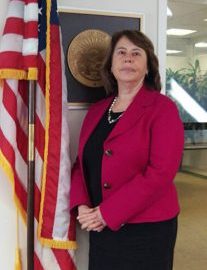
Heller, Maas, Moro & Magill Co., L.P.A., we’d like to congratulate the Hon. Marilyn Zahm, of Buffalo, New York, who was elected president of the Association of Administrative Law Judges. This organization is the union of federal judges that hear Social Security disability cases. Judge Zahm is the first woman to head the AALJ, which represents 1,200 federal judges across the nation involved in Social Security disability cases. She will serve a three-year term.
Some of the issues that administrative law judges who decide Social Security disability cases are facing today include ensuring due process when the agency is pushing to expedite cases and maintaining the independence of the administrative law judge from the Social Security Administration.
Currently, the AALJ is concerned with the Social Security Administration’s recent decision to move thousands of cases that would normally be heard before an independent ALJ, to being heard before non-independent SSA attorneys.
The AALJ informed Congress that this not only denies the American public a non-partial decision by an independent judge absent agency interference, but it is also in violation of the Administrative Procedures Act (APS). Additionally, the AALJ is addressing the agency’s requiring ALJ’s to process cases within a prescribed time frame that the union does not feel is adequate.
Judge Zahm weighs in
Judge Zahm has said that each case is a very labor-intensive process that requires judges to weigh the evidence and determine the extent of physical or mental functional limitations involved with each claimant and provide a detailed written decision required by federal courts.”Every case is somebody’s life and you want to do a careful, thorough job in making a determination,” she said. “They sometimes have as many as five to 10 impairments. You need to make findings on all of them.”
Sifting through thousands of pages of medical evidence
Zahm commented that the size of the case files has exploded in recent years, particularly as new regulations have been added. As a result, up to 30 percent of the files now contain more than 1,000 pages of medical evidence.“Do you have any idea how long it takes to review 1,000 pages of medical evidence?” Judge Zahm said. “We are the only adjudicatory body that I’m aware of that allows such loose requirements for representatives.”
We commend Judge Zahm and the AALJ for advocating for the best judicial process for the ALJ to make an informed decision and the claimant to receive due process,rather than attempting to “clean up” the backlog of pending hearing requests by expediting hearings that most certainly would not be in the best interest of Social Security claimants nationwide.
